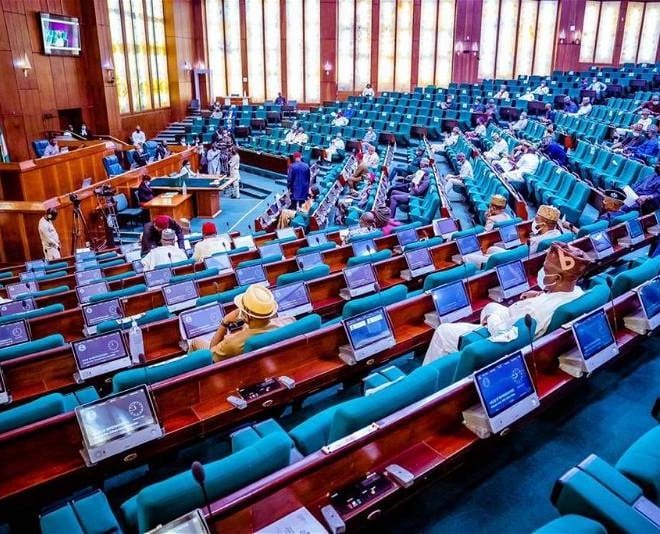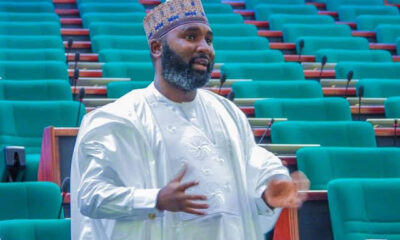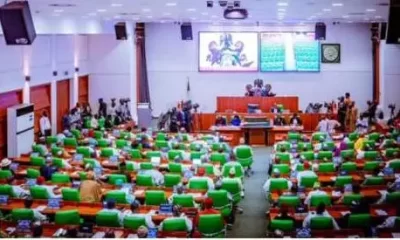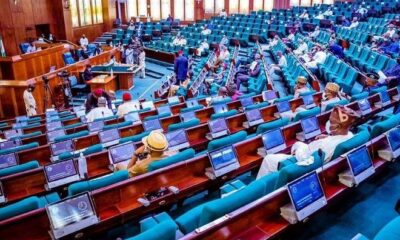News
Reps Suggest Penalties For Gas Flaring

A bill seeking to prohibit gas flaring in Nigeria, ensure compliance with international standards and promote environmental sustainability may be listed for a second reading on the floor of the House of Representatives next week.
Sponsored by the member representing Ikorodu Federal Constituency of Lagos State, Babajimi Benson, the bill seeks to encourage the utilisation of natural gas resources to promote economic growth and reduce carbon emissions.
The Federal Government, in 2022, launched the Nigerian Gas Flare Commercialisation Programme, an ambitious step aimed at achieving zero routine flaring within a decade.
The government also ratified the Paris Climate Change Agreement and is now a signatory to the Global Gas Flaring Reduction Partnership principles for global flare-out by 2030, while committing to a national flare-out target by 2025.
The bill, titled “Anti-Gas Flaring (Prohibition and Enforcement) Act, 2024, a copy of which was obtained by our correspondent, aimed at the prohibition of flaring and venting of natural gas in Nigeria “except in specific, limited circumstances.”
It is also targeted at “The utilisation of associated natural gas for economic development and energy generation, ensure compliance with Nigeria’s international commitments to reducing carbon emissions and achieving climate change targets as well as provide a clear framework for enforcement, monitoring, and penalties to ensure compliance by operators.”
If enacted, the Act shall apply to all oil and gas operators, licensees, and contractors engaged in the exploration, production, and processing of petroleum resources in Nigeria.
It shall cover all onshore and offshore petroleum fields, and applies to the flaring and venting of associated natural gas, whether during routine operations or as a result of unplanned or emergencies.
Part IV (5) of the bill provides that “No oil and gas operator shall engage in the flaring or venting of natural gas in the course of petroleum operations, except as permitted under this Act.
“Flaring or venting is only permitted where it is required for the immediate safety of personnel or equipment, or where expressly authorised by the Nigerian Upstream Petroleum Regulatory Commission for specific, time-bound reasons.”
Gas Utilisation And Reporting Obligations
Section 6 of the Act provides that “All operators are required to submit a gas utilisation plan for the capture, processing, and commercialisation of gas that would otherwise be flared.
“Operators must report all flaring incidents to the NUPRC, detailing the volume of gas flared, reasons for flaring, and the measures undertaken to prevent recurrence.
“The NUPRC shall review the gas utilisation plans and ensure operators implement the necessary infrastructure for gas capture and use.”
Offences And Penalties
The Act provides that any operator who engages in the flaring or venting of natural gas commits an offence.
Section 6 reads “Failure to submit or implement a gas utilisation plan as required under Section 6 shall constitute an offence under this Act.
“Falsifying or failing to report flaring data to the NUPRC is also an offence.”
Penalties For Non-compliance
Section 8 of the proposed law reads that “Any operator that flares gas in contravention of this Act shall be liable to a fine of $5 per 1,000 standard cubic feet of gas flared, or an amount as may be prescribed by the NUPRC from time to time.
“In addition to the financial penalty, repeat offenders shall face additional sanctions, including suspension of operations, withdrawal of licenses, and/or closure of facilities.
“Any operator that fails to report flaring incidents or falsifies data shall be fined not less than ₦50m and may face further legal action, including criminal prosecution.”
The Act further provides that communities affected by gas flaring reserve the right to petition the NUPRC for compensation and environmental restoration.
It also states that the NUPRC “Shall facilitate environmental remediation in affected areas and ensure that operators provide compensation for damages caused by flaring, as determined by an independent assessment.”










